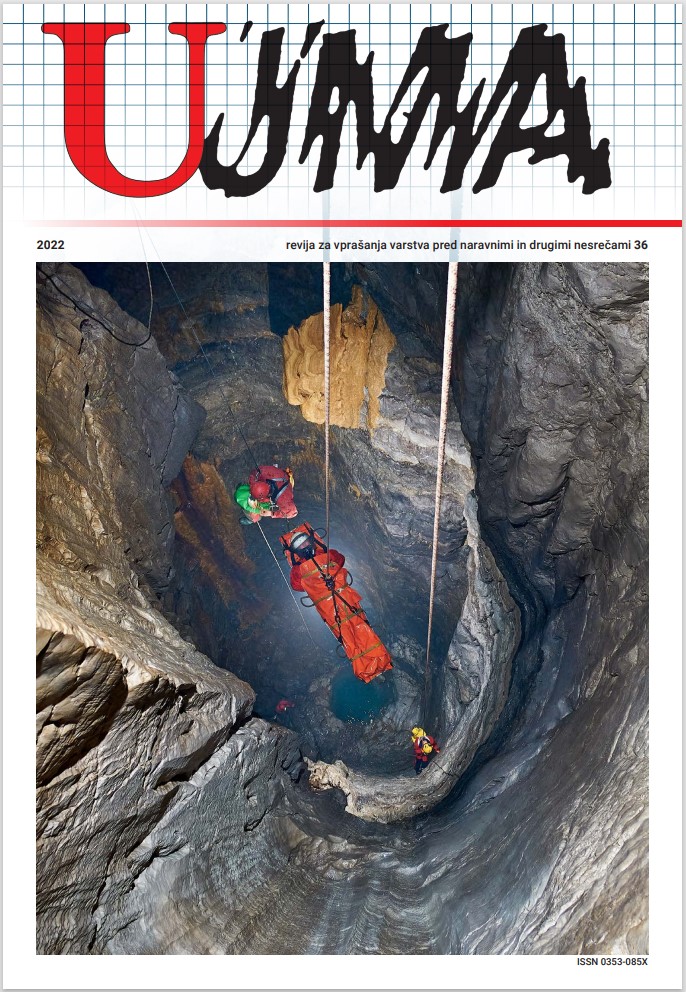EDUCATION AND TRAINING DURING THE FIRST WAVE OF THE COVID-19 PANDEMIC
Abstract
During the first wave of the Covid-19 pandemic, life in Slovenia came to a standstill; schools closed and classes were held remotely. Distance education was a completely new experience for pupils, teachers and headteachers alike. For this reason, the National Education Institute conducted a survey to find out how the education and care was carried out, and how it was experienced by all groups of participants: pupils, teachers and headteachers. The survey provided a number of important insights, including that distance learning was more challenging and stressful for teachers compared to face-to-face teaching, although they still achieved their objectives to a considerable extent. The objectives that were not achieved should be integrated into the objectives for the next school year. However, in spite of the relatively high achievement of the objectives, most of the teachers questioned the reality of their own insight into the extent to which these objectives are actually being mastered by the pupils. A significant challenge was posed by the social and emotional objectives, which a large majority believed were not feasible through distance education. The pupils‘ experience of their own learning from home varied and they were evenly divided into three groups: about a third of the pupils liked this way of learning and rated it as more successful, a third of the pupils rated it as challenging as before, and a third of the pupils rated distance learning as more challenging than face-to-face learning. Based on the survey, the National Education Institute developed a series of training courses, distance learning guidelines and good practice examples to support teachers during the pandemic.
References
Ahmed, Z., Ahmed, O., Aibao, Z., Hanbin, S., Siyu, L., Ahmad, A., 2020. Epidemic of COVID-19 in China and associated Psychological Problems. Asian Journal of Psychiatry, 52, 1–7.
Black, P., Wiliam, D., 2009. Developing the Theory of Formative Assessment. Educational Assessment, Evaluation and Accountability, 21, 5–31.
Bregar, L., Zagmajster, M., Radovan, M., 2020. E-izobraževanje za digitalno družbo. Ljubljana, Andragoški center Slovenije. https://www.acs.si/digitalna-bralnica/e-izobrazevanje-za-digitalno-druzbo/.
Burns, M., 2011. Distance Education for Teacher Training: Modes, Models, and Methods. Washington, DC: Education Development Center, Inc.
Chandrasekaran, S., Badwal, P., Thirunavukkarasu, G., Littlefair, G., 2016. Collaborative Learning Experience of Students in Distance Education. https://www.researchgate.net/publication/305983309_Collaborative_Learning_Experience_of_Students_in_Distance_Education.
Darling-Hammond, L., Barron, B., Pearson, P. D., Schoenfeld, A. H., Stage, E. K., Zimmerman, T. D., Cervetti, G. N., Tilson, J. L., Chen, M., 2008. Powerful Learning: What We Know About Teaching for Understanding. San Francisco, Jossey-Bass.
Digital Learning Collaborative: Snapshot, 2020. A review of K–12 online, blended, and digital learning. The Annual Report of the Digital Learning Collaborative. https://static1.squarespace.com/static/5a98496696d4556b01f86662/t/5e61341d879e630db4481a01/1583428708513/DLC-KP-Snapshot2020.pdf.
Encyclopedia Britannica. @2020 Encyclopedia Britannica, Inc. https://www.britannica.com/topic/Britannica-Online.
Hattie, J., 2009. Visible Learning: A Synthesis of Over 800 Meta-Analyses Relating to Achievement. NewYork, Routledge. 10. Ivanuš Grmek, M., Javornik Krečič, M., 2011. Osnove didaktike. Maribor, Univerza v Mariboru, Pedagoška fakulteta.
Izobraževanje na daljavo v posebnih razmerah. Priporočila za preverjanje in ocenjevanje znanja v osnovni šoli, 2020. https://www.zrss.si/zrss/wp-content/uploads/2020-11-05-priporocila_ocenjevanje-os.pdf.
Navodila za preverjanje in ocenjevanje znanja v programih gimnazij, srednjega strokovnega, srednjega poklicnega in nižjega poklicnega izobraževanja, 2020. Ljubljana: Zavod Republike Slovenije za šolstvo. https://www.acs.si/wp-content/uploads/2020/04/Navodila_preverjanje-in-ocenjevanje_SS.pdf.
Podpora učiteljem za izobraževanje na daljavo, 2020. Svoje učenje načrtujem [plakat]. Ljubljana: Zavod Republike Slovenije za šolstvo. https://www.zrss.si/zrss/wp-content/uploads/2020-04-16-moj-nacrt-ucenja-slo-2.pdf.
Priporočila za ocenjevanje na daljavo, 2020. Ljubljana: Zavod Republike Slovenije za šolstvo. https://sio.si/wp-content/uploads/2020/04/Priporo%C4%8Dila_ocenjevanjeO%C5%A0_16042020.pdf.
Priporočila za zaključek izobraževanja v zaključnih letnikih v programih gimnazijskega, nižjega poklicnega, srednjega poklicnega ter srednjega strokovnega izobraževanja, 2020. Ljubljana: Zavod Republike Slovenije za šolstvo. https://sio.si/wp-content/uploads/2020/05/10019_Priporo%C4%8Dila_zaklju%C4%8Dekizobra%C5%BEevanja_S%C5%A0.pdf.
Slavin, R. E., 2013. Sodelovalno učenje: kaj naredi skupinsko delo uspešno? V S. Sentočnik (ur.), O naravi učenja. Ljubljana, Zavod Republike Slovenije za šolstvo.
Svoje učenje načrtujem. Gradivo v podpora učencem, 2020. Zavod Republike Slovenije za šolstvo. https://www.zrss.si/zrss/wp-content/uploads/2020-04-16-moj-nacrt-ucenja-slo-2.pdf.
UNESCO COVID-19 Education Response, 2020. https://en.unesco.org/covid19/educationresponse/.
William, D., 2011. Embedded formative assessment. New York, Solution Tree.
Downloads
Published
Issue
Section
License

This work is licensed under a Creative Commons Attribution-NonCommercial-NoDerivatives 4.0 International License.
The articles are made available to the public under Creative Commons Attribution-NonCommercial-NoDerivatives 4.0 International (CC BY-NC-ND 4.0).


